Pegida's anti-Islam rallies stir fears of German Turks
- Published
Patriotic Europeans against the Islamisation of the West (Pegida) have held weekly protests since October
For four months, the Patriotic Europeans against the Islamisation of the West (Pegida) movement has been sweeping through Germany, causing concern in the Turkish community, the largest immigrant population in Germany. Turkish-German journalist Lamiya Adilgizi reports.
"A horror film" is how Sirin Manolya Sak, a 29-year-old German-Turkish woman from Berlin, describes the rise of Pegida.
Islamophobia tops the list of reasons why young German Turks are prone to leave their native Germany - the European country with the largest number of immigrants - to go to Turkey, their country of origin.
Many of them have never been to Turkey but have heard about it from their parents, guest workers who preferred not to return to their homeland due to better living conditions in Germany.
Ms Sak says Pegida's rallies are not surprising as it is not a new issue for her community, which has been exposed to discrimination for years in Germany.
'Nothing new'
"This newly emerged Pegida movement had always existed in German society, and foreigners - as they call us - from various cultures and ethnicities, especially from Muslim backgrounds, have always faced this type of discrimination and racism," Ms Sak said.
She calls Pegida the main threat to multiculturalism, as representatives of the movement come from mainstream German society.

Germany's Turkish community
Population: about three million with at least one parent from Turkey, according to 2011 census
Most live in western Germany, in cities including Berlin, Dusseldorf, Stuttgart and Cologne
Germany invited Turkish "guest workers" (Gastarbeiter) in the 1960s and 1970s, intending that they would return to Turkey, but many stayed on
History of difficulties with integration and learning German
Now becoming better integrated, according to a 2014 study (in German) , externalby the Berlin Institute for Population and Development

Counter-demonstrations
According to a new study released by the Bertelsmann Foundation on Thursday, 57% of non-Muslims in Germay regard Islam as a threat, while 61% believe Islam cannot assimilate to Western lifestyles.
Pegida's Facebook page says Turks can do better if they are secular. "The father of the Turks, Mustafa Kemal Ataturk, led Turkey successfully after separating religion and the state and thus proved that a Muslim-oriented country might be capable of that!" it says.
Turkish and other immigrants of Muslim background have staged counter-demonstrations in cities including Berlin, Cologne, Dresden, Stuttgart, Munich and Hamburg.
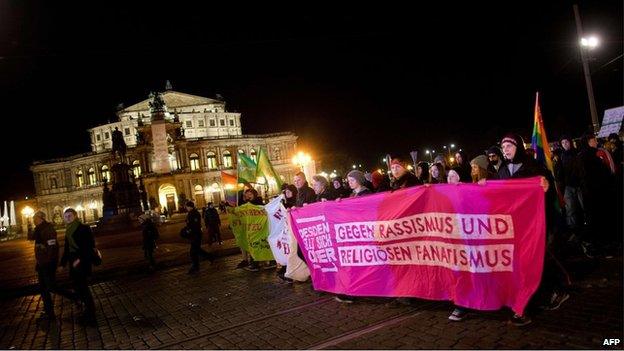
Anti-Pegida protests have been held in recent months amid rising anti-Muslim and anti-Turkish feelings
The latest of these counter-demonstrations was organized by the Turkish community in Berlin in front of the Brandenburg Gate on 5 January, at the same time and place as a Pegida protest.
"Turks are afraid," Cemile Giousouf, a German parliamentarian of Turkish origin from Chancellor Angela Merkel's Christian Democratic Union (CDU), told the BBC.
Attacks on mosques and anti-Turkish graffiti on school walls are on the rise across Germany.
Ms Giousouf describes the protests as the most important signal for the German Turkish community and also for German democracy.
Commenting on the rally in Berlin, she said: "German Turks once again have shown that they are not victims and they are able to unite against divisive movements."
Discrimination
According to Ms Sak, most of the people from the Turkish community are sick of the developments. Many prefer to return to Turkey as they don't see any way out after years-long efforts fighting against racism, social discrimination and Islamophobia.
"No matter how great of an effort you make to prove yourself that you are successful and wish to live in [harmonious] coexistence, it is impossible. You cannot curry favour with Germans," Ms Sak said.
Because of this, she says, she lives back and forth between Berlin and Istanbul.
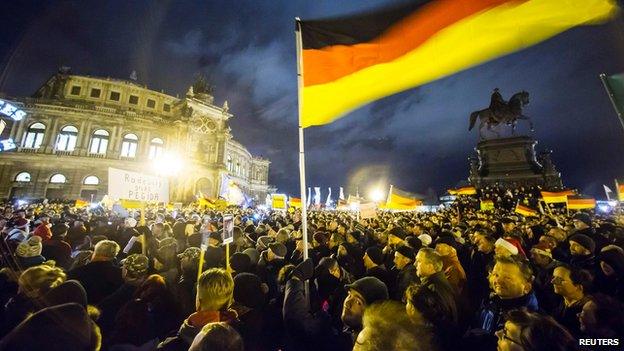
Pegida rallies have been growing in strength in several German cities since they began last October
According to results of a 2013 poll carried out by the Turkish-European Foundation for Education and Scientific Studies (Tavak), the ones who are returning to Turkey mainly belong to the third and fourth generation of Turkish immigrants who were born and raised in Germany.
They are between 18 and 40 years old and leave because "they don't see Germany as a chance for their future".
Most of them possess fluent German in comparison with their guest-worker parents and grandparents. Nonetheless, these German-Turks still have problems harmonising with German society, where they face serious economic deprivation and discrimination, a move that pushes them to move back to Turkey.
According to the study, 63,000 Turks returned from Germany to Turkey in 2013. And in the coming years this number is not expected to change much, according to Faruk Sen, the head of Tavak.
"The Pegida protests reveal that their aim will backlash. Instead of moving back, Turks will choose to stay and resist by becoming more organised, as happened in the early 1990s," Mr Sen said.
Echoing him, another Turkish man in his early 20s who was at the counter-protests in Berlin said he was not planning to return to Turkey even though conditions were not favourable for him in Germany.
Urging the government to address the issue seriously, he said, "It is not xenophobia and it is not against any sort of immigration; it is truly Islamophobia, which is scary and terrible."
- Published13 January 2015
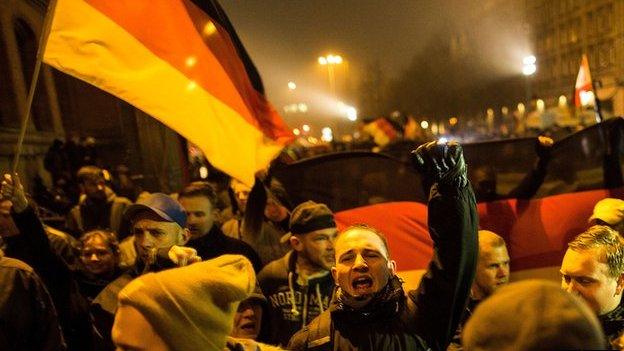
- Published6 January 2015
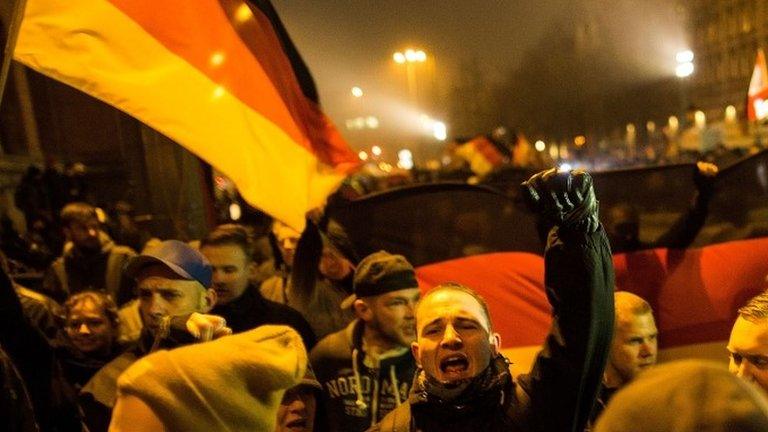
- Published9 December 2014
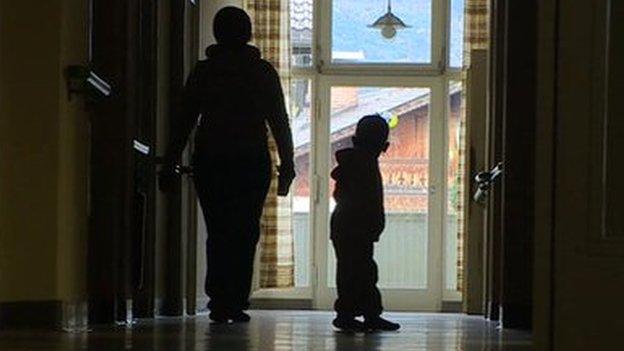
- Published24 December 2014
